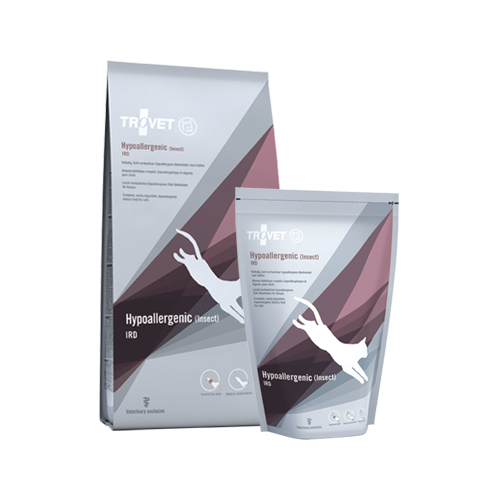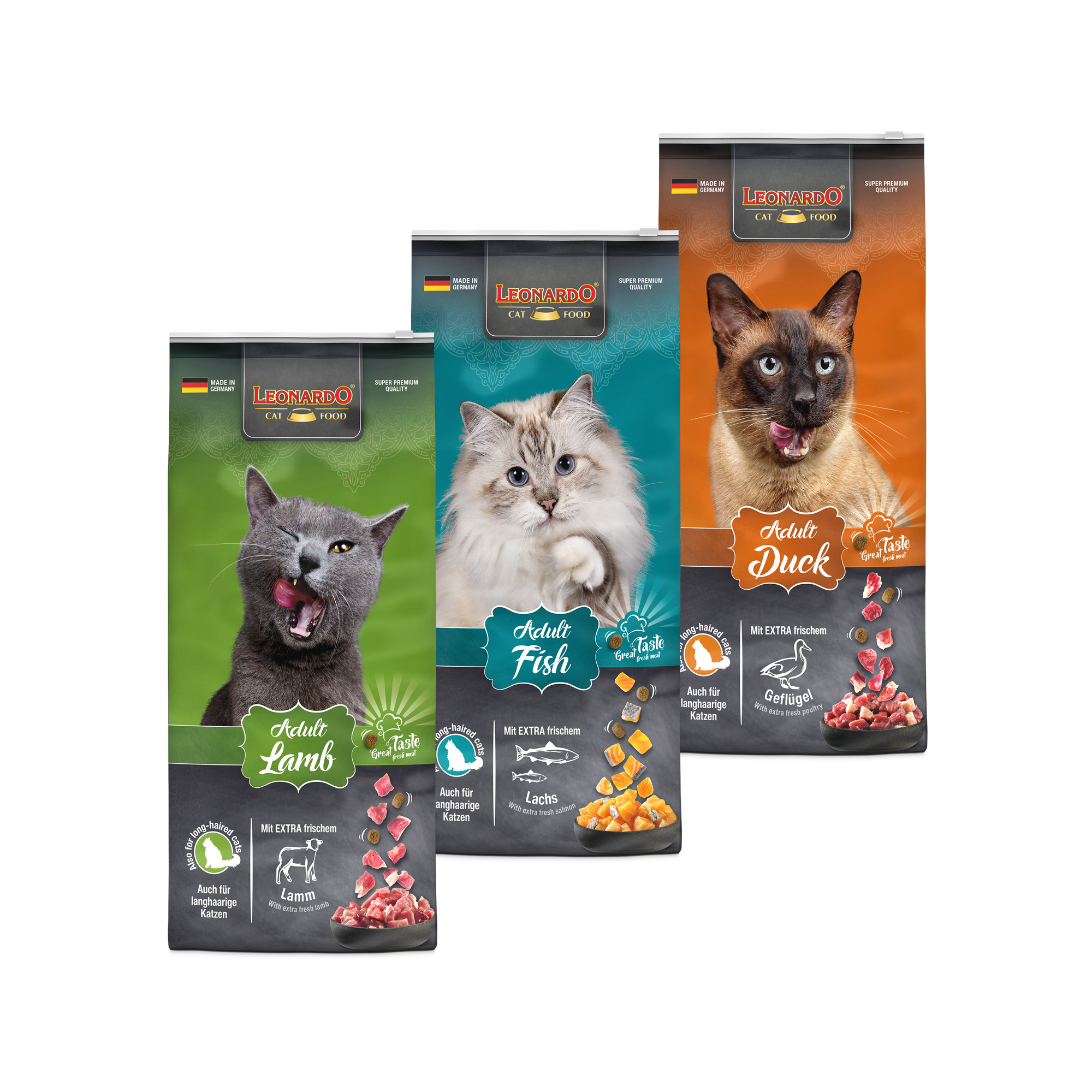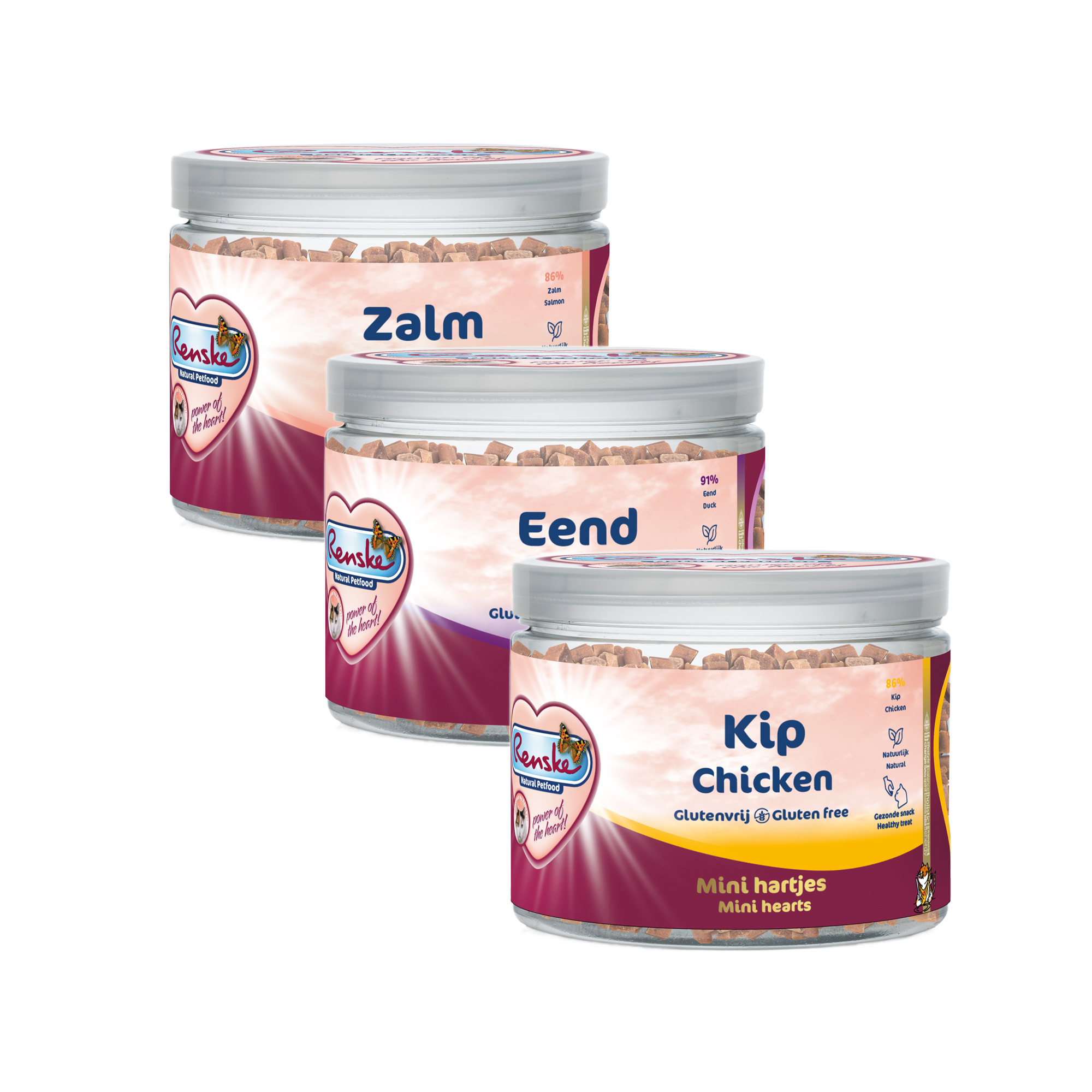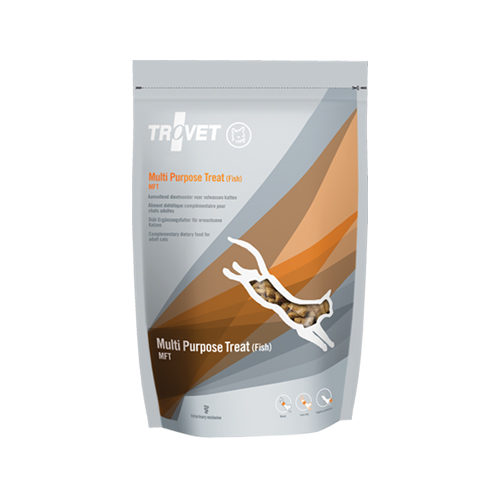Diet food for allergies
Cats with an allergy often suffer from itching, especially around the head, ears and neck. In the case of a flea allergy, this often appears on the back in the form of scabs. The allergy can also lead to skin and coat problems, such as excessive licking, scratching and skin infections. These symptoms occur with both a food allergy and a flea allergy.
The allergic reaction causes itching and inflammation of the skin. With the right food, you can support your cat’s skin and coat. In the case of a food allergy, it is also crucial to give hypoallergenic food that minimises the risk of new reactions.
Hypoallergenic food for food allergies
If your cat has a food allergy, you can choose hypoallergenic food. These diets contain as few allergenic proteins as possible. Important allergens for cats include fish, beef, milk and chicken. A hypoallergenic diet does not contain these proteins or contains them in a form that does not trigger a reaction, such as hydrolysed proteins. You can choose from:
- Food with hydrolysed proteins
- Food based on a single protein source
Hypoallergenic food with hydrolysed proteins
Hypoallergenic food with a single protein source
In addition to adapted food, coat care is also important. You can also consider supplements to give your cat some extra support.
Want to know more about nutrition for allergies?
Do you have any questions about cat food for allergies? Or are you unsure what is best for your cat? You can always contact us at veterinarian@vetsend.co.uk for personal advice. You can also have a look at our full range of diet food for cats.




























